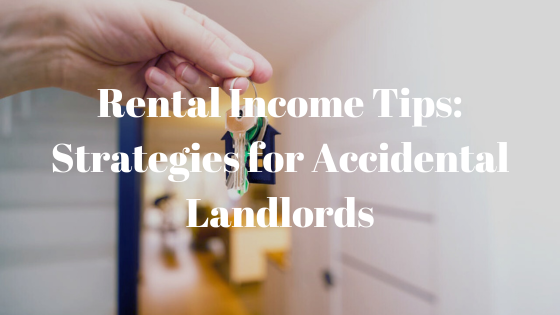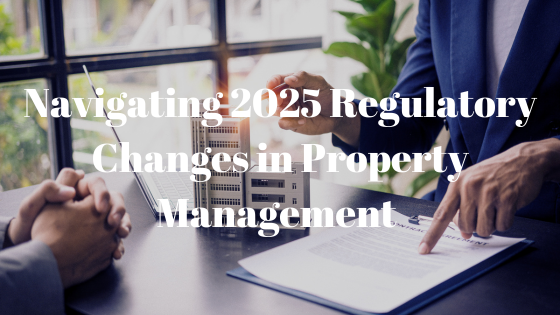Costs That Landlords Don’t Notice They’re Accruing

When you own a rental property, there are times when you might overspend in one area because of an unexpected expense, like an emergency repair or sudden vacancy. But what you want to be careful of is consistently overspending in areas you could be spending less in.
It’s essential, especially as a
DIY landlord, to monitor your business costs so you can determine where high spending happens. Being aware helps you curb your non-essential spending and retain most of your net income. Keep reading to learn about common costs landlords don’t realize they’re accruing and how to avoid them.
1. Spending on Property Maintenance
It’s not surprising that the chief expenses for landlords are often related to property maintenance. Failing to run the numbers properly when doing renovations and delaying repairs can affect your income.
If a roof is leaking and you don’t get in touch with a contractor right away, it can lead to damaged floors and walls and contribute to major property damage. Then you have to end up paying for repairs that are a lot more expensive than the original issues. Skipping regular property inspections can also lead to expensive maintenance costs since you might not know that a tenant is having issues with
mold growth or pest infestation. You may end up spending a lot and face a potential vacancy if unsatisfied tenants move out.

If you want to save on maintenance costs, it’s a good idea to have professionals do routine property inspections. When you’re able to deal with property issues early and arrange for repairs or the replacement of damaged items, your income and property value won’t decrease. This results in happier tenants wanting to stay for the long term.
2. Being Charged for Legal Fees
There is always the potential for legal issues when you operate a rental property. If you partner with a legal consultant, you can minimize legal mistakes. Otherwise, you might end up making a mistake that leads to a costly court case.
For example, you might, unfortunately, end up with tenants that stop paying the rent but refuse to move out of the property. In a case like this, you would likely need to pursue an eviction, which is a complicated legal process.
You need knowledge of state laws and local regulations which is why having legal assistance can ultimately save you money on legal costs. When hiring a legal partner, you need to know the services they’re offering. Ensure you’re getting the most value by doing research and choosing a lawyer or legal firm that specializes in real estate.
Check their legal fees and how you’re being charged so you’re able to maximize the benefits you receive. Review your procedures as well if you find you’re always needing legal services. Perhaps you need to adjust your tenant screening process so you don’t need to evict renters often.

3. Accommodating Low-Quality Renters
Another type of pressure landlords are exposed to is accepting sub-par tenants for their rental property. It can be tempting to accept renters that don’t meet the tenant screening standards when you’ve been dealing with an extended vacancy. Instead of being thorough with background checks, you might forget to call previous landlords or let a bad credit score slide.
While this saves time in the short run, it can lead to financial losses in the future due to a renter damaging the unit and skipping the rent payments. You can also lose valuable time as you go through the eviction process. In fact, having a problematic renter can even be more costly that spending a little more on marketing and maintenance. That’s why it’s recommended to strictly follow the tenant screening procedure you designed.
4. Experiencing Long Vacancy Periods
A vacant rental property can still be costly to maintain, repair, and clean. You’re not receiving any income from an empty unit. Having a budget for vacancy periods is important so you have funds to use for advertising, conducting tenant screening, and preparing your property for new occupants.
Other costs you also need to pay aside from repair and maintenance fees are utility bills, HOA charges, and taxes. The expense of maintaining a vacant rental space is high. You can consider renovating your rental home to attract more prospective renters or review your rental rate if it aligns with the
current market demand.

Once you’ve made strategic adjustments, you can employ effective marketing techniques to increase tenant engagement and raise your property views to land a considerable pool of potential renters.
4. Paying Vendor and Contractor Fees
Doing DIY maintenance and repairs tends to be more expensive because you might have to spend more redoing the repairs or hiring a professional in the end anyway. It’s important to have a reliable team of vendors and contractors you can contact for regular property maintenance. Keeping your unit in stellar condition requires prompt responses. It’s particularly crucial if you run into a maintenance emergency on your property. Keeping your renters safe is the number one priority for landlords.
While operating your rental home, you’ll be working with specialists like plumbers, inspectors, and electricians to maintain an excellent unit. A trustworthy administrative and accounting staff focusing on business paperwork is also a great asset. Prior to selecting a team of contractors and personnel, performing research and screening vendors is a good idea.
No matter how busy you are as a landlord, taking the time to evaluate vendors and contractors based on the value they offer is important. You should also review the fees from time to time so you won’t be surprised by rate changes that lead to higher costs.

Look for value as you build up your vendor network. Read reviews, ask for recommendations and cultivate a good relationship with the people you work with. This way, you can ask for rate discounts or negotiate for free additional services the longer your service contract is signed.
Work with a Property Manager to Limit Overspending
A great way to put a cap on expenses is to hire a reputable property management company. They can negotiate vendor rates on your behalf and ensure your renovation projects are going as planned. Most property managers already have a solid network of vendors and can pass on their savings to you.
If you’re looking for a reliable property management company that offers extensive property management services from marketing to maintenance, call Dawson Property Management today!
We can help cut down your rental operation costs and maximize your rental income.







